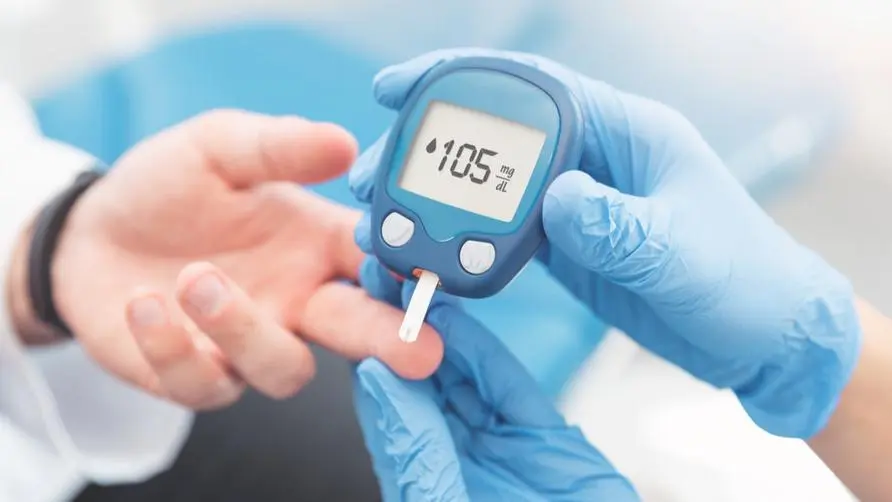Have you found the reason why obese people overeat? Brain response to nutrients 'severely impaired', study confirms

Have you found the reason why obese people overeat? Study: Brain response to nutrients ‘severely impaired’
Is it related to obese people’s weak response to nutrients in their diet, their overeating behavior, and their increased rate of regaining weight after weight loss? On June 12 this year, the international journal “Nature Metabolism” published a study by a team from Yale University School of Medicine in the United States and the University of Amsterdam in the Netherlands. The team compared the BMI values of 30 healthy-weight subjects (BMI value below 25) and Differences in obese subjects over 30 years old.
The research team injected glucose, fat, and water into the bodies of two groups of horses and horses, and simultaneously measured their brain neural activity and images of dopamine release. Research has found that obese people’s brain response to glucose and fat entering the stomach is weaker than that of people with a healthy BMI. Moreover, after 12 weeks of diet-controlled weight loss, the obese people still cannot lose 10% of their weight. The brain’s response to nutrients in the stomach returned to the same level as in people with a healthy BMI.
“Nature Metabolism” mentioned that since it is very common to regain weight after losing weight, this study will help to understand the impact of obesity on the brain, and in the future find out how the intestine and brain (brain-gut axis) transmit messages to each other. , to help obese people lose weight.
Does the brain sense nutritional signals without going through the mouth? Why does the brain only respond less to fat?
To this end, the Taiwan Science and Technology Media Center invited two experts: Associate Researcher Huang Shengyan of the Institute of Biomedical Sciences, Academia Sinica, and Chen Yuwen, Manager of the Animal Imaging Facility of the Center for Translational Medicine, Academia Sinica, to analyze the importance of this research.
Two experts said that the findings reveal the close relationship between brain chemicals and behavior, especially since previous studies have suggested that appetite is related to the pleasure produced by the brain (such as dopamine release). But more research is needed to understand whether this pleasure comes from the pleasure of eating delicious food or the body’s need for nutrients.
This study injects glucose and fat directly into the human stomach through a gastric tube, proving that the brain senses nutritional signals without going through the mouth. The study used two types of medical images, “fMRI” and “SPECT”. fMRI can observe changes in brain neural activity, while SPECT can analyze the release of dopamine in the brain.
The study concluded that regardless of the individual’s weight or metabolic status, intragastric infusion of glucose led to increased release of dopamine in the brain, but intragastric infusion of fat did not trigger the release of dopamine in the brain of obese subjects. This finding led to a series of hypotheses. The authors believe that the reduced brain response to fat in obese patients may be related to changes in the way the brain’s nerves transmit signals.
Is the brain’s weakened response to nutrient perception “irreversible”? Expert: It can only be explained by “unclear” response to the signal
It is worth noting that although the study hypothesizes that the brains of obese people have a weakened response to glucose signals, which may mean that the impact of obesity on brain signals is irreversible, the results of this study can only explain the response of the brains of obese people to intestinal nutrition signals. It is not clear and cannot be clearly stated that this problem comes from the failure of the gut-brain connection or the reduction of the interconnection between neurons within the brain.
In addition, since the current study only focuses on people over 40 years old, and the observation and data collection period is very short, the brain response of obese people is tested 12 weeks after they lose weight. Therefore, it remains to be studied at other ages and whether the brain changes after obesity are Changes in the way nerves transmit signals and long-term irreversible phenomena. However, since weight gain is common after weight loss, this study also provides the basis for subsequent research on how signaling between the gut and the brain affects weight loss and weight changes.
In this part of related research, scientists are mainly striving to more comprehensively understand the impact of intestinal and brain signal transduction. For example, behavioral changes (such as eating habits and mood changes) in patients after bariatric surgery have been observed in clinical treatments. In the past, other research teams have used MRI, or magnetic resonance imaging of the brain, to explore the physical nerves and functions of the brain. Changes in sexual connection.
These past findings point to the possibility that extrinsic factors can be used to modify the eating behaviors of obese patients. If, as hypothesized in this study, the weakened response of the brain to sensing nutrition is irreversible, then the surgery should have no effect. However, overall, it has been observed clinically in Taiwan that patients undergoing gastric bypass surgery and weight loss injections have significantly changed their eating habits. Therefore, the hypothesis about obesity and changes in neurotransmission signals requires more experimental support, and is also one of the ongoing research directions in the academic community.





